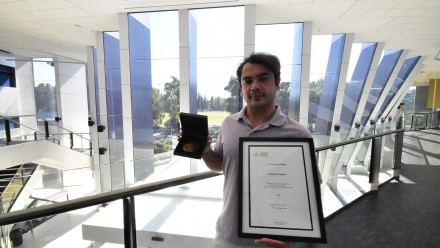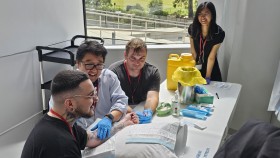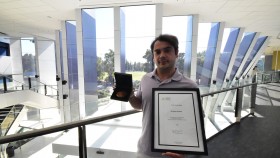Improving Indigenous kidney health with genomics
A national collaboration led by The Australian National University (ANU) has received a grant from Medical Research Future Fund to fight a rising epidemic among Indigenous Australians.
With the world’s highest rates of chronic kidney disease (CKD), Indigenous Australians shoulder a much heavier burden of CKD than their non-Indigenous Australian counterparts.
“Almost one in five Indigenous Australians show signs of CKD. Worse, compared to the non-Indigenous Australian population, CKD in Indigenous Australians is frequently detected decades earlier and is associated with greater impacts on life expectancy,” said Dr Simon Jiang, a nephrologist at The Canberra Hospital and a group leader at The John Curtin School of Medical Research, ANU.
Despite the high prevalence and devastating impact of CKD, the cause behind its increased risk in Indigenous Australians remains unclear.
“Whilst lifestyle, environment and high levels of diabetes contribute to the high rates of CKD, there is a strong link to genetics,” he said.
Genetic risk has been estimated to account for 60% or more of the risk of developing CKD in Indigenous Australian communities.
“This research allows us to understand the unique mechanisms contributing to CKD in Indigenous Australians using a genetics-based approach.”
To investigate how differences in DNA, or genetic variants, shape the development of CKD, Dr Jiang and colleagues initiated a national collaboration between clinician nephrologists and immunologists.
This project, which connects the Australian Capital Territory, Queensland, Northern Territory, and Western Australia, has been awarded a $975K Genomics Health Futures Mission Grant by Medical Research Future Fund.
“This grant will enable our team to utilise a new technology to identify and prove how genetic variants contribute to CKD,” said Dr Jiang.
Equipped with a high-throughput screening system, the researchers can use state-of-the-art computational genomic analysis to search for causal genetic variation for CKD.
According to Dr Jiang, this platform designed by the team can substantially reduce the time and resources required to examine each gene. It will help overcome one of the critical bottlenecks in gene validation at a population level.
To date, few Indigenous Australian populations have undergone genetic analyses linked to CKD.
With support from Tiwi Land Council and the National Centre for Indigenous Genomics (NCIG), ANU researchers recently performed whole genome sequencing of over 200 Tiwi Islanders, successfully identifying key gene variants involved in CKD development.
The collaboration with the Tiwi Islanders represents a community-initiated partnership to resolve the issue of kidney disease, which is seen as a priority by Indigenous leaders.
“We are extending on the discoveries made in a single community, the Tiwi, to now encompass Indigenous Australian communities nationally,” said Dr Jiang, “This is a first national collaboration to understand the genetics of CKD in Indigenous Australians.”
As a critical and unique model for Indigenous engagement in genomic research, NCIG will work with collaborators across the nation to ensure a community-consultation-based approach is utilised with Indigenous-led governance.
NCIG also will support ongoing communication and education regarding genomics between this research initiative and community partners,
Through the collaboration, the team aims to address deficiencies in the application of genomics to Indigenous Australians and achieve improved clinical outcomes in community health.
“The ultimate goal is to improve the kidney health of Indigenous Australians across Australia,” said Dr Jiang.















